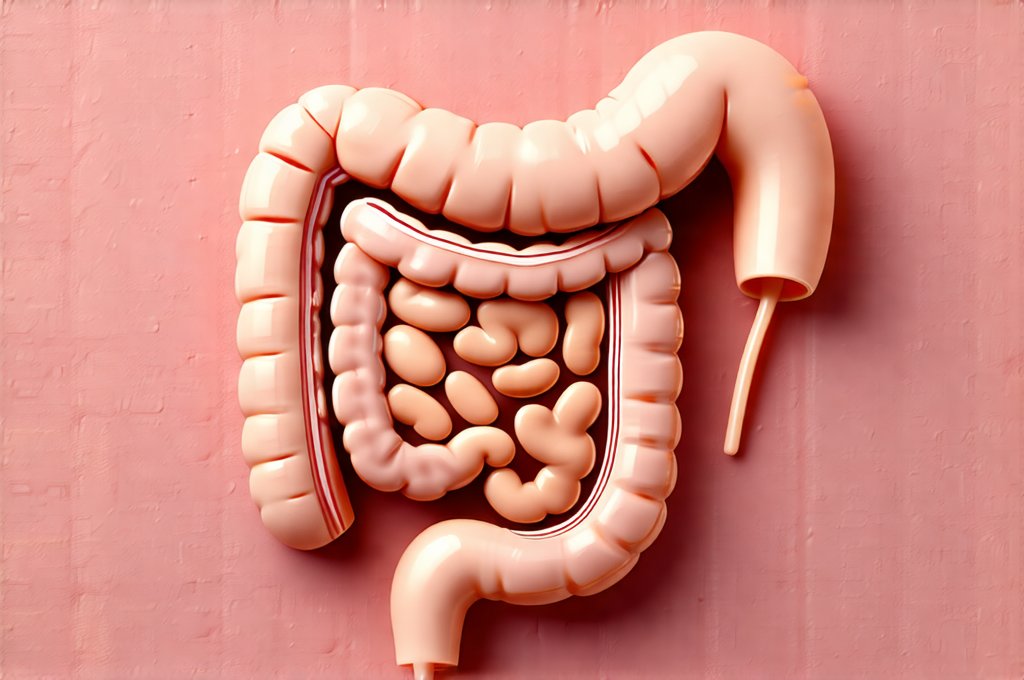The intricate connection between our emotions and digestive system is often underestimated. We’ve all experienced “butterflies” before a stressful event, or perhaps felt nauseous when anxious – these aren’t merely metaphorical responses. The gut and brain are in constant communication via what’s known as the gut-brain axis, a complex network involving nerves, hormones, immune cells, and even the microbiome. When emotions significantly impact digestion, it can manifest as a wide range of symptoms, from bloating and constipation to diarrhea and abdominal pain. Identifying whether emotional factors are contributing requires careful assessment, often incorporating specific digestive tests alongside a thorough evaluation of psychological well-being. These tests aren’t always about finding physical abnormalities; frequently they aim to rule out other conditions and help understand how the digestive system is functioning under stress. Considering low-residue meals can also be helpful during periods of heightened emotional distress.
Understanding this interplay isn’t simply about recognizing that stress causes stomach upset. It’s about acknowledging the bidirectional nature of the gut-brain axis: what happens in our gut can influence our mood, and vice versa. Chronic stress, anxiety, depression, and trauma can all disrupt digestive processes, leading to conditions like Irritable Bowel Syndrome (IBS), functional dyspepsia, and even inflammatory bowel disease (IBD) flares. The goal of testing is therefore often to understand the specific mechanisms at play for each individual, as emotional impacts differ greatly from person to person. A holistic approach involving healthcare professionals – gastroenterologists, psychologists, and registered dietitians – is crucial for effective diagnosis and management. Recognizing when GERD and IBS overlap can be key in treatment.
Understanding Functional Digestive Disorders
Functional digestive disorders are characterized by symptoms that occur without demonstrable structural or biochemical abnormalities. This means standard tests like colonoscopies and endoscopies may come back normal, yet the individual experiences significant distress. These disorders are strongly linked to emotional factors because the gut-brain axis is often at the core of their development and maintenance. Conditions such as IBS (Irritable Bowel Syndrome), functional dyspepsia (chronic indigestion), and GERD (Gastroesophageal Reflux Disease) frequently fall into this category, and emotional stress can significantly exacerbate symptoms. It’s important to remember that “functional” doesn’t mean the symptoms aren’t real; it simply means the underlying cause isn’t easily identified through conventional testing. The brain influences gut motility (how quickly food moves through the digestive tract). – Emotional states affect visceral hypersensitivity (increased sensitivity to pain in the gut). – Stress hormones can alter the gut microbiome, impacting digestion and immune function. Sometimes even can clutter contribute to these feelings?
These disorders often require a multi-faceted approach to treatment, involving dietary changes, stress management techniques like mindfulness or therapy, and sometimes medications to manage symptoms. Digestive tests in these cases are less about finding disease and more about characterizing how the digestive system is behaving, identifying potential sensitivities, and ruling out other conditions that could mimic functional disorders. They help paint a clearer picture of what’s happening within the gut, even when traditional diagnostic methods fall short. It’s crucial to differentiate these conditions from organic diseases through appropriate testing before attributing symptoms solely to emotional factors.
Tests for Assessing Gut Function
When emotions are suspected to play a role in digestive issues, several tests can help assess gut function and rule out other causes. These tests aren’t always straightforward and often require interpretation by a specialist. It’s important to understand that no single test can definitively diagnose the impact of emotions on digestion; it’s usually a combination of tests and clinical evaluation that provides the most accurate picture.
Hydrogen Breath Test: This is commonly used to diagnose lactose intolerance, fructose malabsorption, and Small Intestinal Bacterial Overgrowth (SIBO). SIBO, in particular, can be exacerbated by stress as stress reduces digestive motility allowing bacteria to colonize the small intestine. The test measures hydrogen levels in breath after consuming a specific sugar; elevated levels indicate bacterial fermentation of unabsorbed carbohydrates. The process involves: 1. A baseline breath sample is collected. 2. The patient consumes a specified amount of lactose, fructose or another substrate. 3. Breath samples are collected at regular intervals (e.g., every 15-30 minutes) for several hours. Elevated hydrogen levels suggest malabsorption or bacterial overgrowth. It’s important to note that SIBO can be difficult to diagnose and requires careful interpretation.
Gastric Emptying Study: This test assesses how quickly food empties from the stomach. Delayed gastric emptying is often associated with functional dyspepsia and can be worsened by stress, as anxiety can slow down digestive processes. The study typically involves eating a meal containing a radioactive substance, then monitoring its transit through the stomach using a scanner. – Results help determine if delayed emptying contributes to symptoms like bloating and nausea. – It’s also used to rule out other conditions that cause delayed gastric emptying.
Stool Testing: While not directly measuring emotional impact, stool tests can provide valuable information about gut health and inflammation. Tests might include: 1. Calprotectin: A marker of intestinal inflammation, helping differentiate between IBS and IBD. 2. Microbiome analysis: Assessing the composition of gut bacteria; an imbalance (dysbiosis) can be influenced by stress and contribute to digestive symptoms. 3. Digestive enzymes: Evaluating pancreatic function and ability to digest fats and proteins. Stool tests are relatively non-invasive and provide a snapshot of what’s happening in the gut, but it’s crucial to understand that microbiome analysis is still an evolving field and results should be interpreted cautiously.
The Role of Elimination Diets & Food Intolerance Testing
Food intolerances can often mimic symptoms caused by emotional distress, making diagnosis challenging. While true food allergies involve an immune response (and are typically diagnosed through allergy testing), food intolerances are more about digestive difficulties. These sensitivities can be exacerbated when someone is stressed or anxious, as the gut’s ability to process foods efficiently diminishes under pressure.
An elimination diet, guided by a registered dietitian, involves removing potential trigger foods for a period of time (typically 2-6 weeks) and then reintroducing them one at a time to identify sensitivities. This can be incredibly helpful in identifying foods that worsen symptoms, but it requires discipline and careful monitoring. – It’s crucial to work with a professional to ensure nutritional adequacy during the elimination phase. – Food diaries are essential for tracking symptoms and correlating them with specific food reintroductions. How cooking methods impact these sensitivities is also important.
Food intolerance testing is more controversial. While various tests claim to identify sensitivities, many lack scientific validation. IgG food sensitivity tests, for example, often detect antibodies that indicate exposure to a food rather than true intolerance. These tests can lead to unnecessary dietary restrictions and anxiety. – More reliable methods include carefully conducted elimination diets combined with symptom tracking. – The focus should be on identifying foods that consistently trigger symptoms, not relying solely on test results.
Biomarkers & Emerging Technologies
Research is constantly evolving, leading to new tools for assessing the gut-brain connection and emotional impact on digestion. While many of these are still emerging, they hold promise for more personalized diagnosis and treatment.
Cortisol Testing: Measuring cortisol levels in saliva or blood can provide insight into stress hormone fluctuations. Chronically elevated cortisol can disrupt digestive function and contribute to IBS symptoms. However, it’s important to note that cortisol levels fluctuate throughout the day and are influenced by many factors beyond emotional state. – Serial cortisol testing (measuring levels at different times of day) provides a more accurate picture.
Heart Rate Variability (HRV): HRV measures the variation in time between heartbeats. Lower HRV is often associated with increased stress and reduced vagal tone (the nerve that connects the brain to the gut). While not directly assessing digestion, HRV can provide an objective measure of autonomic nervous system balance. – HRV biofeedback training can help individuals learn to regulate their nervous systems and reduce stress.
Gut Microbiome Sequencing: As mentioned earlier, microbiome analysis is becoming increasingly sophisticated. Advances in sequencing technology allow for a more detailed understanding of gut microbial composition and function. This information can guide personalized dietary interventions and probiotic supplementation. However, it’s crucial to remember that the microbiome is complex and our understanding is still evolving. More research is needed to fully understand how to interpret these results and translate them into effective treatments. Can sleep position impact this delicate balance? The future of digestive testing will likely involve a combination of traditional methods and emerging technologies, tailored to each individual’s needs and circumstances. A comprehensive approach, integrating medical evaluation, psychological assessment, and targeted testing, remains the cornerstone of effectively addressing emotional impacts on digestion. Additionally, understanding when GERD and IBS overlap is key for holistic care. Finally, consider if can travel has an impact on your digestive health.


















